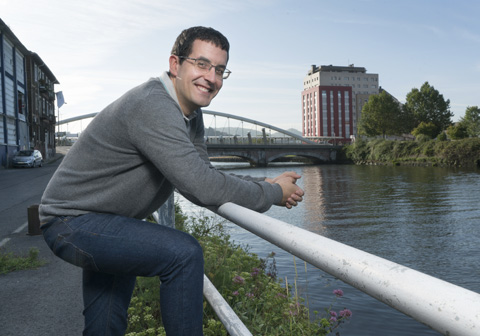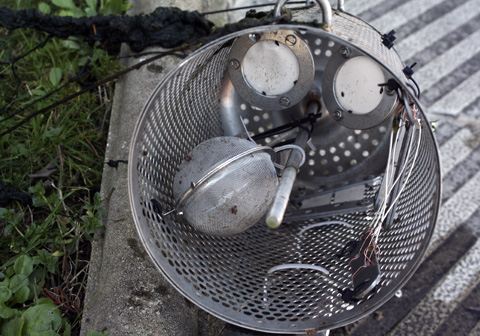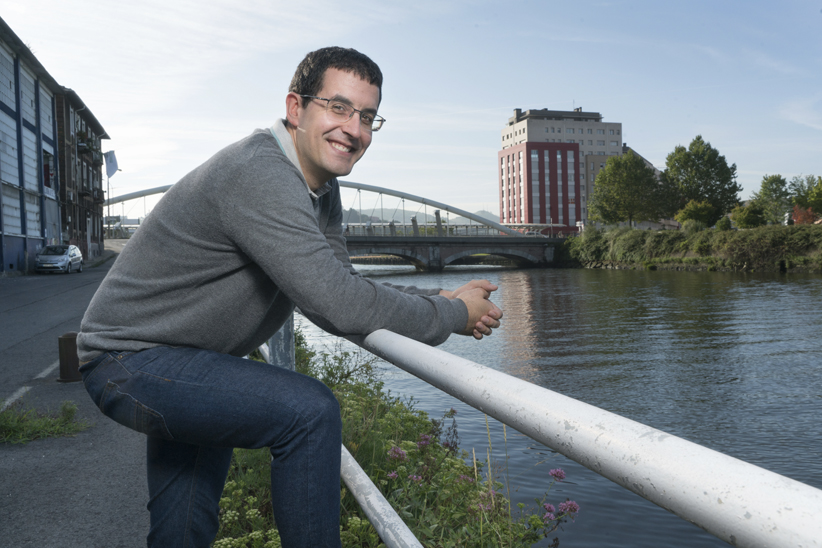The study carried out by the UPV/EHU researcher Oscar Posada has resulted in a passive sampling procedure for various undissolved organic micro contaminants in estuary waters and treatment plant effluent as well as a series of environmentally-friendly analytical methods which are sensitive and low cost. All this has enabled the presence of these contaminants in Basque aquatic environments to be detected and quantified, thus reducing the consumption of resources and time to a minimum.
Determining organic contaminants in rivers and estuaries in a fast, sensitive and simultaneous way
The UPV/EHU-University of the Basque Country has detected and quantified the presence of insoluble organic contaminants in environmental waters using efficient, environmentally-friendly methods
- Research
First publication date: 22/08/2017

The huge quantity of organic micro contaminants released into the environment due to the daily activities of humans has prompted many countries to revise and update legislation on the presence of water-borne organic contaminants. The persistence of these contaminants in aquatic environments interferes with natural processes and, as a result, they need to be continually monitored. However, accurately determining organic contaminants in the trace level range (in nanograms per litre of water, ng/L) using extraction methods that are user-friendly in the laboratory and environmentally-friendly remains an analytical challenge.
The researcher in the UPV/EHU's Department of Analytical Chemistry Oscar Posada has developed analytical methods suitable for determining a broad spectrum of emerging organic micro contaminants in samples of environmental waters, mainly in estuary waters and in treatment plant effluent, as well as a passive sampling procedure for them.
Posada based his study on various non-polar contaminants of anthropogenic origin which are not subject to any standards regulating their ecotoxicological status, such as synthetic musk fragrances (from personal hygiene products and detergents) organochlorine and organophosphate pesticides (lindane and its by-products), alkyl phenols (from detergents) and phthalates (substances that are added to plastics). As Posada explained, "one of the features of non-polar substances of this type is that they are less soluble in water so they are present in very, very low concentrations".
Cutting the consumption of resources and time
"The passive sampling system developed is a system that functions without any energy input and without any need for human handling," explained Posada. "It is placed in an aquatic medium for a specific period of time and uses polymer materials as the absorbent phase". That way, the system gradually accumulates contaminants spontaneously, and may even accumulate substances that are present in concentrations of just a billionth part of a gram (0.000000001 g) per litre of water. The researchers in the department have confirmed the viability of these systems in saline water, fresh water and estuarine waters, where salinity varies periodically; the system has been used in the treatment plants of Galindo and Gernika and at the Plentzia Marine Station.
Once the sampling has been done, the system is transferred to the lab for analysis. The analytical methods developed and validated by Posada are "ones that are environmentally-friendly, sensitive, simple and low-cost". According to Posada, "the classical methods used until now consume a greater volume of solvents and other materials that harm the environment". Another of the advantages offered by this system is that "with a single, simple analysis it is possible to come up with an averaged value of the substances contained in the water", studied by the researcher.
In the researcher's view, "this research has enabled us to analyse a broad spectrum of organic contaminants and conduct the effective monitoring of many of them at key sampling points". It is worth highlighting that in the studies carried out in the above-mentioned locations the researchers have detected several of the contaminating substances studied, but all of them "are below the limits stipulated by law". Posada concluded that "the applicability of these systems could be extended to subsequent research work in which other non-polar organic compounds need to be monitored. The experience built up in developing passive sampling systems has enabled their use to be extended to other types of compounds, such as pharmaceutical compounds in environmental waters".
Additional information
This research is part of the PhD thesis by Oscar Posada-Ureta (Barakaldo, 1986) entitled Non-polar contaminants in estuarine waters: new extraction methods and passive sampling choices, which the researcher wrote up in the Department of Analytical Chemistry in the UPV/EHU's Faculty of Science and Technology. His supervisors were Néstor Etxebarria and Maitane Olivares.








